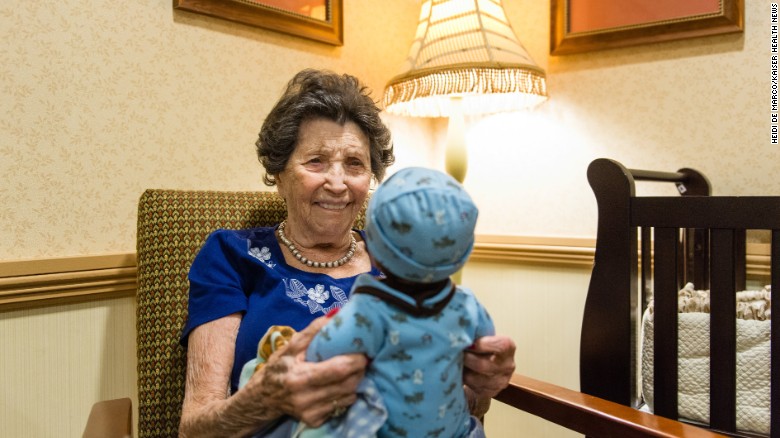
The facility prefers other types of therapy, including art and music, she said. And staff members there work with residents to play brain games that promote critical thinking. Studies on doll therapy are limited, but some research has shown it can reduce the need for medications, diminish anxiety and improve communication, according to Gary Mitchell, a nurse specialist at Four Seasons Health Care in the United Kingdom who has authored a new book about doll therapy. However, Mitchell acknowledged it is possible that doll therapy, because it can infantilize adults, "perpetuates a lot of stigma with dementia care that we are trying to get away from."
Some families worry about their relatives being laughed at when they engage in doll therapy, Mitchell noted. He said he understands those concerns, and even shared them when he worked at a senior residential center. But when one resident requested that he allow her to continue caring for a doll, he soon saw the positive impact of the therapy. Mitchell said it can be very beneficial for some people -- especially those who may get easily distressed or pace obsessively. "Having the doll ... offers them an anchor or a sense of attachment in a time of uncertainty," he said. "A lot of people associate the doll with their younger days and having people to care for."
Read CNN’s full article about this unique dementia therapy HERE.

You must be logged in to post a comment.